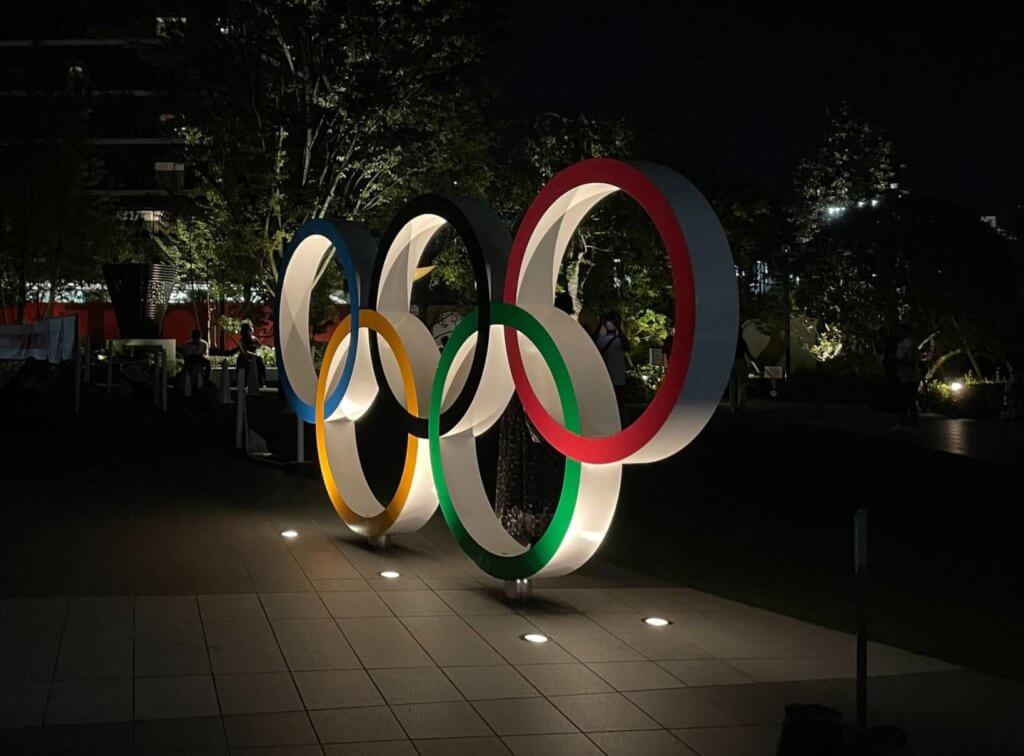An Olympic Frame of Mind: How Leaders Can Hone Their Mindset For Peak Performance
After months of uncertainty, athletes from more than 200 countries are finally gathering for the 2020 Summer Olympics in Tokyo. They bring with them a myriad of hopes and dreams, struggles and anxieties—and a rarefied perspective on how to train their minds, as well as their bodies, for achievement at the highest level.
This year’s fabled Summer Games are accompanied by a large asterisk, taking place in 2021 rather than 2020. For one long year, the athletes now vying for medals have trained in the shadow of a global pandemic and put their dreams of glory on hold. They compete under the ongoing threat of a last-minute cancellation in arenas nearly devoid of spectators; glory, should it come at all, will arrive in hushed tones.
Of course, for most athletes, adversity comes with the territory, as does the experience—indeed, the necessity—of delaying gratification. Successfully reckoning with such experiences is part of a mindset that helps transform some competitors into Olympians. Athletes of this caliber have much to teach us all.
A Tale of Loss—and Triumph
My interest in the mindset of Olympic athletes dates to the summer of 2012, when a swimmer named Maya DiRado sat on a sofa at my home in Northern California and watched the US Olympic swim team compete at the London Summer Games. She eagerly rooted for the topflight athletes, but I knew her well enough to know that her cheers hid regret and disappointment. Just a few months earlier, Maya herself had been on track to become an Olympian. She had reached the Olympic Trials in Omaha, Nebraska, where the nation’s most promising swimmers competed for a place on the US team, but fell short of her goals. She came in fourth in two events, but only the first and second place swimmers made the US team; Maya thought she had missed her sole chance to become an Olympian and would forevermore experience the Summer Games as a couch-bound spectator.
Nonetheless, in the four years following her near-miss in Omaha, Maya continued training for the Olympics—and, more importantly, changed how she trained. This process of unceasing effort and adjustment culminated in her appearance at the 2016 Summer Games in Rio, a high point of which was the 200-meter backstroke—an event she had never swum at a major international competition. Stroke for stroke, she vied for the lead with Hungarian swimmer Katinka Hosszu, before ultimately winning by the length of a fingertip. With that victory, Maya concluded an arduous Olympic journey and stepped onto the world stage. In all, she won two gold medals, a silver, and a bronze. The world saw a star; both traditional and social media were aflutter with praise for her athletic prowess.
Maya’s transformation into the winner whom the world saw in Rio naturally required intense training that the world didn’t see, with hours upon hours of practice and excellent coaching. But the most important transformation she underwent was mental: Maya developed an Olympic Frame of Mind. I use this term—which I coined with Maya—to describe a set of cognitive techniques and behavioral practices that extraordinary athletes adopt in their push to achieve peak performance.
Athletes who reach the Olympics, or rise to the top of any sport, rivet our attention through gripping displays of what their bodies can do. Yet underlying their feats of physical prowess are equally amazing feats of mental discipline. As president and CEO of King Philanthropies—where Maya (now Maya DiRado Andrews) was for several years a portfolio manager—I am privileged to work with high-performing leaders who successfully drive change in multiple sectors. I have often observed that these motivated, successful people exhibit behavioral qualities that align with those of great athletes. Like Maya—who also conducted and synthesized much of the research that undergirds my work on this concept—these leaders embody an Olympic Frame of Mind.
A Laboratory for Mental Discipline
Athletes intuitively understand and embrace the fundamental truth that “the body follows the mind.” Because outcomes in sports are measured in inches and milliseconds, athletes must look diligently and creatively for any edge in their performance. This leads them to focus on mastering the cognitive and behavioral aspects of their chosen sport. As they train their bodies to achieve maximum strength, speed, and dexterity, so they train their minds for maximum focus and flexibility.
The world of athletics, in short, provides an ideal laboratory for participants to develop an optimal mindset—an Olympic Frame of Mind. This mindset focuses not so much on winning as on adopting techniques and practices that enable peak performance.
Key elements of an Olympic Frame of Mind include:
Setting the Right Goals in the Right Way
Setting one’s sights on a lofty goal—on the gold medal that looms over a distant horizon—can be harmful to any effort to improve performance. Successful athletes understand that goal setting requires discipline, specificity, and precision.
Put in the Time—and Lots of It
In a crucial sense, Olympic-level athletes are made, not born. They are made over thousands of hours of practice and many years of building, testing, and honing their skills. They are a living repudiation of the common preference in today’s society for quick fixes and instant gratification.
Just like the rest of us, athletes feel pressure and get nervous as they prepare for a big event. But, unlike many of us, they have developed the ability to harness stress for their benefit. They do so by treating stress as, in effect, a gift that spurs high performance. They view it as another muscle that they can build up and then use.
Focus on What’s in Front of You
Top performers benefit from habits of mind that enable them to ‘put the blinders on’ and give laser-like attention to the task at hand. To be sure, competition can fuel excellence—but star athletes know that anxiously darting their eyes toward their rivals will not help them reach the finish line.
Adjust Fearlessly, Even When Things Are Going Well
Athletes who are at the top of their game look beyond wins and losses, and refuse to settle for “success.” This orientation leads them to keep adjusting their performance without fear that such changes will hinder their forward progress.
In adopting an Olympic Frame of Mind, athletes must absorb lessons that seem deeply counter-intuitive—that stress is good, for example, or that a moment of triumph is the best time to change a winning technique. But those lessons (and others that I will discuss in this series) reflect findings from sports psychology and other fields that study the building blocks of excellence in performance.
A Regimen for Making Change
As critical as an Olympic Frame of Mind is to an athlete, it is arguably more critical to those who lead an organization, a cause, or a movement. To be sure, there are few areas of life in which we can measure outcomes with such precision as in sports. But the qualities of mental discipline that athletes cultivate are no less crucial to success in non-athletic endeavors. Leaders from any sector who seek to make change in their field routinely draw on those qualities. In the forthcoming series of articles, I will feature many social sector leaders who have exhibited an Olympic Frame of Mind. These include Andrew Youn from One Acre Fund; the late Fazle Abed of BRAC, Angeline Murimirwa from CAMFED; Roy Prosterman of Landesa; Rukmini Banerji of Pratham; Raj Panjabi, cofounder of Last Mile Health; Abhijit V. Banerjee and Esther Duflo, of J-PAL.
Take the example of Strive Masiyiwa, a business leader and philanthropist from Zimbabwe. His first name is fitting indeed, for his success has hinged on his ability to set clear, ambitious goals and to pursue them relentlessly. Back in 1993, Masiyiwa decided to create the first independent mobile telecommunications company in Zimbabwe. A huge undertaking in its own right, the task was especially daunting because Masiyiwa had to contend with the Zimbabwean Posts & Telecommunications Corporation (PTC), a state-owned monopoly provider with close ties to Robert Mugabe, the country’s longtime president. Under the PTC-controlled system, access to phone service was extremely limited. Indeed, by Masiyiwa’s estimate, an astonishing 75 percent of Zimbabweans had never heard a phone ring, and the average consumer could wait more than a decade to install a phone line. Masiyiwa aimed to disrupt that situation by adding competition to the phone market and by using mobile telephony to leapfrog traditional landline service.
Strive and Tsitsi Masiyiwa
Gisela Schober/Getty
To launch his business, Masiyiwa needed to secure a license from Mugabe’s government, and PTC was fiercely opposed to granting it. The struggles that Masiyiwa faced went beyond cronyism and corruption: At one point, the government threatened to prosecute him unless he relented in his quest to start an independent telecom provider. Masiyiwa refused to back down, and took his case to court. Along the way, he recalled, he became “public enemy number one.” Following a legal process that spanned nearly five years, the Constitutional Court of Zimbabwe (the highest court in the nation) ruled in Masiyiwa’s favor, and the entrepreneur was at long last able to launch his company, Econet Wireless Group. What’s more, his victory in court spurred the development of private telecom companies across Africa; Masiyiwa estimates that 75 percent or more of African consumers now use mobile phone service.
Masiyiwa’s achievement required Olympic-grade persistence and focus. It also forced him to “flex his stress muscle” when the vast weight of the Mugabe regime bore down on him. And, with his Olympic Frame of Mind, Masiyiwa never rested on his laurels even after he became a telecom mogul. Instead, he delved into philanthropy and, with his wife Tsitsi, became a leading figure in the African philanthropy movement.
A Way to Win That Isn’t About Winning
Day after day, athletes must set goals, prepare diligently, manage stress, focus on what matters most, and adjust their performance in response to both success and failure. So, too, must leaders who aim to drive change in any field. For athletes and non-athletes alike, the fundamental elements of a winner’s mindset are essential to achieving big goals. But in adopting an Olympic Frame of Mind, we should also absorb a deeper lesson about what it means to “go for the gold” in our lives.
People have loved winners—especially in sports—from time immemorial. Winners at the first Olympic Games, held in Greece in 776 BCE, were hailed as heroes, showered with gifts, and immortalized in poetry. Modern Olympians receive similar acclaim, with the caveat that victors today are more likely to receive recognition on a Wheaties box than in a poetic ode.
Yet the rise of social media in recent years has caused our preoccupation with winning to intensify exponentially. Social media not only glamorizes winners; it also bestows special praise on those who make their triumph look effortless. This relatively new technology reinforces an age-old human tendency: Even as we exhort children to work hard and to cultivate “grit,” our instinct is to celebrate the prodigy, the “born” genius, the “natural” athlete. As a result, we end up weaving a narrative of achievement that omits stories about the process of achieving—a narrative that ignores the endless struggles and countless adjustments that elite competitors undergo during the long days between each fleeting win.
As we watch the 2020 Olympics—and work to develop our own Olympic Frame of Mind—we might refocus our attention on the Olympic Creed put forth about a century ago by Pierre de Coubertin, the founder of the modern Olympics:
“The most important thing in the Olympic Games is not to win but to take part, just as the most important thing in life is not the triumph, but the struggle. The essential thing is not to have conquered, but to have fought well.”
Originally published in Forbes

